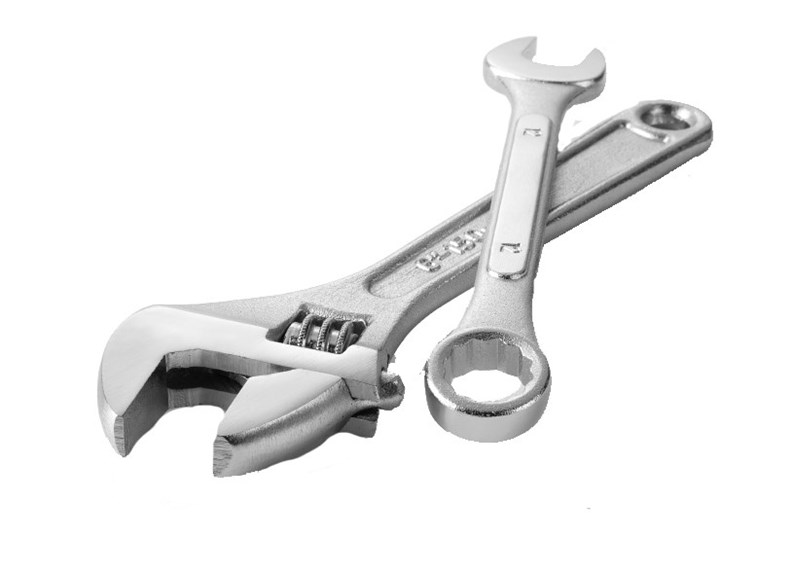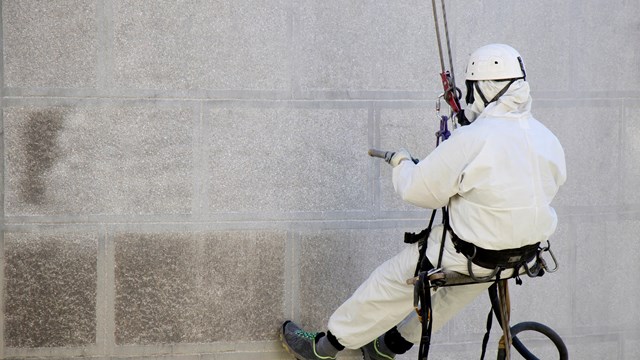In New York City, getting an accurate water bill is as unlikely as getting a taxi at rush hour," says Michael Lockhart, president of American Telephone and Utility Consultants and founder of The Coalition for Water Bill Justice. "Co-op and condo owners are all-too-familiar with the problem–excessive numbers of apartments, toilets, and baths being billed on frontage; overestimated bills on broken meters; bills calculated using incorrect rates; buildings double-billed on both frontage and metered billing; bills with overlapping billing periods–and so on and so forth."
The effect of this "flawed" billing system has been the growth of an industry known as utility bill auditing. According to Lockhart, "Those of us in this industry have saved New York City customers millions of dollars by obtaining refunds for past billing errors and by securing our customers the lowest utility rates available."
Reacting to such comments, DEP’s Bureau of Customer & Conservation Services deputy commissioner Lawrence Schatt says that under the guise of The Coalition for Water Bill Justice, Lockhart has made false and misleading statements. "He respresents the Coalition as a ‘grassroots organization created to advocate for fair billing practices for water customers in New York City.’ In reality, he is soliciting business for his company, American Telephone and Utility Consultants, which charges customers as much as 50 percent of any reduction in their bills." Lockhart responds that Schatt has been critical of utility auditors because "we have discovered countless billing errors and have submitted thousands of claims to get refunds for our customers." Pointing out that a recent water board decision has reduced the time frame to challenge a bill from six years to two years, Lockhart further states, "Yes, rather than improving their flawed billing systems, the DEP moved to limit consumers from disputing bills."
The coalition’s primary concern is combatting what Lockhart calls DEP’s massively flawed billing system. "Nine out of ten New York City properties we audit have water bill errors, and quite often, these errors have been undiscovered for years. Once errors are found, navigating the Department of Environmental Protection (DEP) bureaucracy can take from months to years to resolve even minor billing problems," Lockhart says.
Here are two real examples according to Lockhart:
• "A client was issued estimated bills for four years. The customer paid around $12,000 annually in water bills in that period. Prior to that, they were paying around $1,000 annually. Despite this dramatic increase, DEP never examined the issue. Because the four years of estimated readings were so high, when the actual readings were finally taken, it caused DEP to wrongly assume that meter dials had "turned over." (Like a five digit odometer going past "99999"). After bringing this to DEP’s attention and presenting them with historical readings showing how this customer could never have consumed this much water, the customer was credited close to $40,000. With the new two-year complaint rule, the customer would have been deprived of approximately $25,000 of money erroneously obtained by the DEP."
• "A client was being billed for one of its meters that had been previously removed. For nearly five years, DEP billed this non-existent meter based on "actual readings." Upon advising DEP of this blatant error, we obtained a refund for the customer of over $400,000. With the new two-year complaint rule, the customer would have only received less than half of the deserved amount, irrespective that they were billed for water they did not even consume."
Schatt says that the above examples are "dated" and that "it is incomprehensible that [Lockhart] would distort the efforts of DEP to improve billing." Pointing to DEP’s efforts to improve billing practices, Schatt says, "Estimated bills have been cut from 42 percent in July 1996 to 16 percent currently. Further, since the customers with over-estimated bills have been the ones coming forward with complaints, the remaining customers with estimated bills most likely represent accounts that have been under-estimated." He continues, "The reality is that DEP has over the last four years conducted over 100 evening and weekend outreach events with local community groups and a range of real estate coordinating groups to provide customers with easy access to our customer service representatives. Our efforts to address real and perceived billing problems is obviously taking business away from auditors, like Mr. Lockhart, and he is reacting to his loss of potential future income." Disagreeing with Schatt’s assertion, Lockhart states, "Regarding the two-year complaint rule, the irony here is that this rule actually helps my business, since a shorter time frame requires a customer to have a consultant be on board to uncover billing errors quickly, otherwise the refund becomes forfeited."
Citing examples of how customers would lose money owed them, Lockhart states, "The shortened time frame for challenges means that many consumers will be cheated out of refunds for overcharges on bills they have paid." Schatt refutes his claim, stating that Lockhart "fails to recognize that this change was only for bills issued after July 1, 1999. The regulation makes no change to the period for which an adjustment could be made, only the time frame for submission of an inquiry about either a specific bill or the account in general. We do not believe that customers need two years to identify a problem. To the contrary, we find that within days of the receipt of a bill, customers will call, write or visit one of our offices if they believe there is an error. Once an inquiry has been lodged, the customer has reserved his/her rights for appropriate adjustments, for a period of up to six years."
Lockhart responds, "Two years is simply not enough time for the average consumer to review and challenge his/her water bills. Most consumers can barely understand their bills, let alone verify their accuracy. Most can’t tell if their meter is malfunctioning. Most don’t have the comprehensive knowledge of the rates and policies that affect their bills. And most don’t have the sophisticated computer programs that can readily calculate and re-calculate bills. This is why many customers don’t realize that they have been overcharged until an outside professional has advised them. A customer should be given a second chance to review his/her bills, which may not be possible in a two-year time frame."
Schatt says that Lockhart’s examples of the two-year complaint-filing regulation misrepresent its actual impact on customers. "In one example on the web, [Lockhart] states that in the event a customer realizes that the water bills he/she has been paying over the last six years were actually for a neighbor’s meter, the customer will only be refunded payments for the last two years. This either shows his lack of understanding of the regulation or he is purposely distorting the facts. In reality, the period of the refund is in no way impacted by the change in the regulation. The period of adjustment would be the entire six-year period, provided that a complaint is filed anywhere at DEP or the Water Board within two years of the issuance of the bill. Once the complaint or inquiry has been lodged, the customer reserves his or her rights with regard to the bill in question and any eligible adjustments would be retroactive beyond the two-year period, if appropriate."
Lockhart is adamant in relaying his notion of the effects of the two-year policy. "Mr. Schatt’s argument is a clever play on words since it could be only true, if and only if the customer were to receive one bill covering a six-year period. His statement is false 99.9 percent of the time since every DEP customer is set up to be billed on either a monthly, quarterly or annual basis. His example of the customer receiving a single bill covering a six-year period would mean that DEP forgot to bill him for six years!"
Lockhart provides an example: "From January 2000 to December 2005, a customer receives 72 consecutive monthly bills for the wrong rate. He brings forward the complaint in January 2006, which is within two years of the last bill being issued (December 2005), but some six years after the first bill being issued (January 2000). Since the customer complained in January 2006, he will only get a refund for all bills issued after January 2004, even though he was overcharged from January 2000 to January 2004, as well."
Lockhart also points to the practices of other utilities to question the new two-year policy. "Con Edison and Brooklyn Union Gas allow customers to get refunds going back six years. DEP’s adoption of a two-year limit for refunds is highly unusual for a utility, and also, as Public Advocate Mark Green has said, is ‘harsh and anti-consumer.’ Not surprisingly, many of my customers were angry about this new DEP rule, and they wanted to challenge DEP on this issue. So we took our fight to the State Legislature in Albany, urging them to pass a bill to prohibit DEP from reducing the complaint-filing period. The Public Advocate, the State Consumer Protection Board, and numerous community boards supported our position. In a matter of weeks, the Senate voted 56-0 and the Assembly voted 145-1 in favor of a bill introduced by Senator Serphin Maltese (R-C, Queens) and Assemblyman Peter Abbate Jr. (D, Brooklyn)."
Lockhart continues, "Despite nearly unanimous support in the legislature, Governor Pataki surprisingly vetoed the bill, stating that he wanted to protect DEP’s revenue stream for the benefit of bondholders. Clearly, the governor is playing politics by favoring the interests of bondholders over the interests of consumers. Nevertheless, it is still an indefensible position to condone DEP’s retention of revenues obtained from overcharging customers. To make matters worse for consumers, DEP refuses to pay interest on money collected for erroneous bills. Just as consumers are liable for interest on unpaid bills, DEP should be liable for interest on overpaid bills. Con Edison and Brooklyn Union provide interest on overcharges, so should DEP. This would give them a strong incentive to issue accurate bills, as well as to promptly grant refunds to customers when they have been overcharged."
In the end, all the back and forth statements and open questions leave you with the bottom line–the age-old maxim, "Let the buyer beware." The updated mode of action is to become educated consumers. Lockhart says the bill still has a chance. It is absolutely necessary for you to be knowledgeable about the policies and regulations which affect your lives.
Ms. Grover is managing editor of The Cooperator.







7 Comments
Leave a Comment